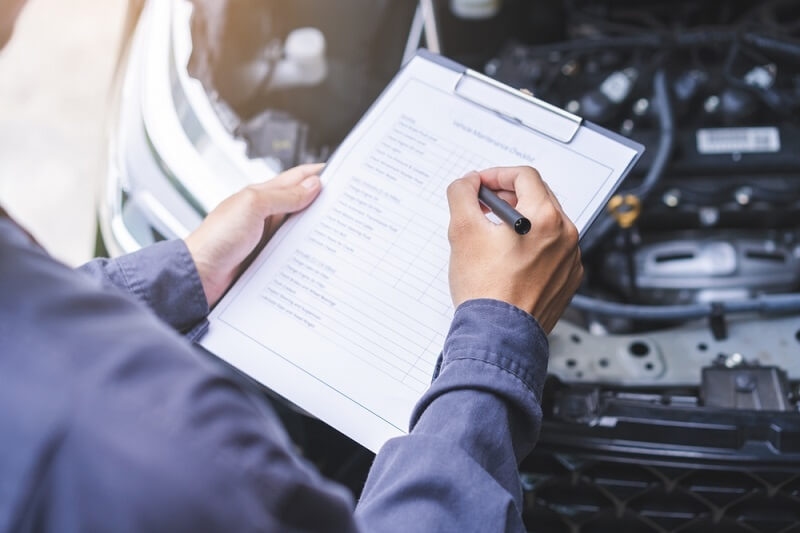Car Recalls Round-Up: Major Safety Risks for Drivers

When you buy a car, you expect it to be safe and reliable. But even top automakers make mistakes. Every year, millions of vehicles are pulled back for car recalls because of hidden defects or safety risks.
These recalls are not random. They’re warnings that something could fail, cause injury, or reduce vehicle reliability. Knowing how to handle a recall alert can save you time, stress, and possibly your life.
This round-up breaks down what’s happening in the world of car recalls, the biggest recall alerts in recent months, and what you should do if your vehicle is affected.
What Are Car Recalls and Why They Matter
A car recall happens when a manufacturer finds a defect that affects safety or performance. The company issues a notice asking owners to bring the vehicle in for free repair or replacement.
Here’s why you should care:
- A recall means a part or system has failed the safety test.
- Ignoring it can lead to serious safety risks.
- It affects your vehicle’s reliability and resale value.
Manufacturers often send recall alerts by mail or email. But not everyone checks. Many people keep driving without realizing their car has a known issue.
Recent Major Car Recalls You Should Know
Car recalls are rising fast. Modern cars are packed with electronics and software, and small design flaws can turn into big problems. Here are a few major recall alerts from 2025 that matter for drivers.
1. Hyundai Santa Fe Fire Risk
Hyundai recalled over 135,000 Santa Fe SUVs from 2024 and 2025. The problem was a cover near the starter motor that could spark a fire during a crash.
What it means for you:
- Even new models can have safety risks.
- Electrical defects are among the most dangerous issues.
- Owners should visit service centers immediately for manufacturer updates.
This recall showed how one loose part can turn a safe SUV into a fire hazard. Always take recall alerts seriously, even if the issue sounds small.
2. Ford’s Record Recall Count
In 2025, Ford was in the news because of its more than 100 recalls. Among the reasons were not only problems with the engine but also errors in the software of the backup cameras.
The significance of these recalls:
- It is very clear that the recall problem is extensive.
- Reputable companies have to deal with safety and reliability issues constantly.
- Running smoothly does not mean that the car is fine.
Ford's recalls prove the intricate nature of modern-day vehicles. A single software update may rectify the camera issue, while another may fix a crucial flaw in the brakes.
3. BYD Battery Defects
BYD recalled more than 115,000 electric vehicles after discovering design flaws in the battery system. These defects created overheating and fire risks.
Takeaway:
- Electric vehicles are introducing fresh safety risks of different kinds.
- Defective batteries may influence both the aspect of performance and the aspect of reliability.
- Manufacturer updates that are regular are essential in the process of keeping EVs safe.
As EVs are becoming more and more popular, it will be common to have more recalls related to battery systems and software. Being informed is the best way to keep ahead of the risks.
How Recall Alerts Work
When the recall is declared, the maker distributes reminder notices through numerous ways. It might be a letter, email, or even a phone call. Some of the smart cars show the notification on the dashboard.
What to do when you get one:
- Check the recall number and verify it on the NHTSA recall database.
- Schedule your repair appointment as soon as possible.
- Keep a copy of the service record for your files.
- Never ignore a recall, even if the issue doesn’t seem urgent.
Most repairs are free. The manufacturer covers the cost because it’s their defect. All you need to do is act quickly and stay updated.
Safety Risks You Shouldn’t Ignore

Some owners think small recalls are harmless. That’s a mistake.
A recall alert means the manufacturer has identified a safety risk. It could be minor, like a faulty sensor, or severe, like a brake failure. Both can cause accidents if ignored.
Top safety risks found in recent car recalls include:
- Airbag inflators bursting at the moment of impact
- Electrical shorts resulting in fire
- Software bugs that impact rear cameras or lane assist systems
- Faulty seatbelts or steering components
Even minor defects might be enough to put the whole system in danger. If there is a failure of one sensor, other systems that are relying on it can also fail.
Manufacturer Updates and What They Mean
Modern vehicles rely on both mechanical and digital systems. That’s why manufacturer updates are as important as physical repairs.
When you see a message about a system update, treat it as part of your recall response. Many software-based recalls fix critical functions like braking, lighting, or airbag deployment.
Steps to stay current:
- Register your vehicle on the automaker’s website.
- Enable notifications for manufacturer updates.
- Visit service centers when a software update can’t be installed remotely.
Staying updated ensures your car runs on the latest safety protocols. Ignoring updates can leave you exposed to known defects.
How Recalls Affect Vehicle Reliability
A car with unresolved recalls is less reliable. Simple.
Unfixed defects can reduce lifespan, performance, and resale value. Buyers are wary of cars that have recall history, even if the problem was repaired.
On the other hand, it is not all negative. A company that handles recalls timely and openly generally regains trust. Customers appreciate corporations that prioritize their safety.
Tips for maintaining vehicle reliability:
- Keep all recall work documented.
- Follow up after repairs to confirm the issue is resolved.
- If your car has frequent recalls, consider discussing replacement options with the dealer.
A proactive approach keeps your car dependable and safe on the road.
Why Car Recalls Are Increasing
There are a few reasons why car recalls are more common today:
- Cars have more parts and systems than ever before.
- Software defects now count as safety risks.
- Global manufacturing leads to supply chain variations.
- Automakers are under stricter reporting rules.
The upside is that recalls show the system is working. It means problems are being found and fixed before they cause major harm.
What You Should Do Now
Here’s a quick checklist for car owners:
- Go to NHTSA.gov and check your VIN for open recalls.
- Sign up for recall alerts from your automaker.
- Act immediately when a recall notice arrives.
- Keep track of all manufacturer updates.
- When buying used, confirm all recalls are closed.
By doing these five things, you avoid unnecessary safety risks and protect your investment.
The Bottom Line
Car recalls are not just corporate mistakes. They’re early warnings meant to protect you. A recall implies that something was not right, and getting it fixed is the smart thing to do.
Every time you receive a recall notification, it should be taken as a sign to take action rather than panic. Keeping yourself updated and reacting promptly will ensure safety and reliability.
Contemporary automobiles are the most advanced ever, but the downside is that defects can occur more easily. The best preventive measure is to be aware. Examine your vehicle, keep track of the updates, and always pay attention to the warnings.
This content was created by AI

